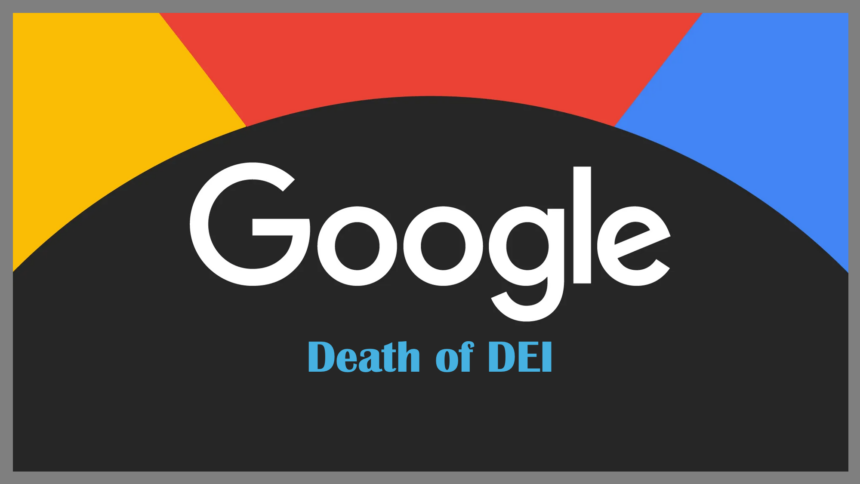Google is ending its diversity, equity, and inclusion (DEI) hiring goals, following pressure from the Trump administration’s executive order on federal contractors. The decision, detailed in an internal memo, places Google among several major tech companies that have scaled back or eliminated their DEI initiatives in response to federal compliance concerns.
The move follows Trump’s executive order, which warns of financial penalties for federal contractors with “illegal” DEI programs. Google is adjusting its policies to align with the latest federal guidelines as a central cloud computing and AI service supplier to the U.S. government.
What’s Happening & Why This Matters
Google’s Shift on DEI Hiring Goals
For over a decade, Google has publicly championed diverse hiring efforts, emphasizing greater inclusion across leadership roles and tech teams. Following the 2020 killing of George Floyd, the company set a goal to increase leadership diversity by 30% by 2025. However, its latest SEC 10-K filing shows that these commitments have been quietly removed.
- Google no longer explicitly states its diversity hiring goals, a stark shift from previous years.
- Leadership diversity figures have improved slightly since 2020:
- Black leadership representation grew from 2.6% to 5.1%.
- Hispanic leadership increased from 3.7% to 4.3%.
- Women in leadership rose from 26.7% in 2020 to 32.8% in 2024.
- Despite these changes, Google’s workforce remains predominantly male and Asian/white:
- Black employees make up 5.7% of the total workforce.
- Latino employees account for 7.5%.
The Bigger Picture: Federal Crackdown on DEI Programs
Google’s decision aligns with a corporate trend: major companies scale back or eliminate DEI initiatives to avoid government scrutiny. Trump’s executive order signals a federal push against corporate diversity policies, raising compliance concerns for government contractors.
- Tech giants like Amazon and Meta have already rolled back DEI programs:
- Meta ended key DEI initiatives in January 2024.
- Amazon reduced parts of its diversity efforts in December 2023.
- Trump’s administration has not clearly defined which DEI programs violate federal rules, creating legal uncertainty for companies.
- The False Claims Act introduces potential financial penalties, making companies wary of continuing large-scale DEI hiring initiatives.
- Beyond tech, corporations in retail and finance are also reconsidering their diversity strategies, opting for a more cautious approach.
What This Means for Google’s Workforce
While Google insists it remains committed to equal opportunities, its policy shift signals a new era for corporate diversity initiatives. The company, which generates $350 billion in annual revenue and employs 183,000 people globally, now faces critical challenges balancing federal compliance with workforce expectations.
- Employee reactions are mixed. Some voicing frustration over the rollback fear a slowdown in progress toward a more inclusive workplace.
- Legal analysts caution that companies are adjusting their policies to reduce risk without clear federal guidelines rather than outright abandoning DEI efforts.
- The long-term impact on corporate hiring trends remains uncertain as businesses navigate a changing regulatory landscape while trying to maintain commitments to workplace inclusion.
TF Summary: What’s Next
Google’s decision to end its DEI hiring goals reflects increasing federal pressure on corporate diversity initiatives. With Trump’s administration taking a more rigid stance on DEI policies, major companies must reevaluate hiring strategies to remain compliant while balancing workforce expectations. Whether this practice halts progress or forces new approaches to workplace inclusion remains to be seen.
— Text-to-Speech (TTS) provided by gspeech


